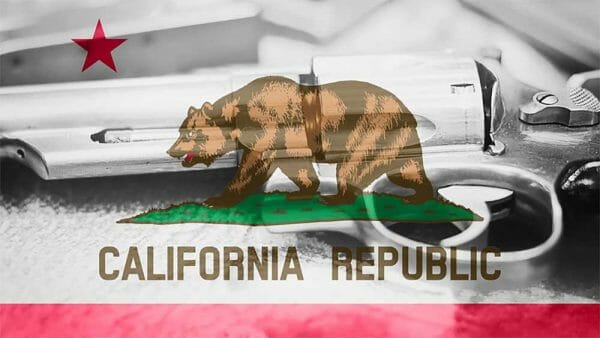
U.S.A. — On May 1, in the Federal District Court for the District of Southern California, a number of plaintiffs, including San Diego County Gun Owners PAC, California Gun Rights Foundation, Firearms Policy Coalition, Inc., and Second Amendment Foundation, filed a lawsuit challenging the California statute requiring a ten-day waiting period before a person may purchase a firearm in California. The case is Richards v Bonta. A previous lawsuit, Silvester v Harris, failed. The Supreme Court refused to grant a writ of certiorari in 2018, with Justice Thomas dissenting. From the dissent:
Because the right to keep and bear arms is enumerated in the Constitution, courts cannot subject laws that burden it to mere rational-basis review. District of Columbia v. Heller, 554 U. S. 570, 628, n. 27 (2008). But the decision below did just that. Purporting to apply intermediate scrutiny, the Court of Appeals upheld California’s 10-day waiting period for firearms based solely on its own “common sense.”
A complicated two-step system, with its “ways/means” rational basis test disguised as intermediate scrutiny, was instituted and used by the Ninth Circuit and other courts to disfavor rights protected by the Second Amendment. This was done in Silvester v Harris and other cases. Justice Thomas repudiated that process in the Bruen decision on June 22, 2022. The Bruen decision makes another challenge to the California waiting period law ripe for review. In Richards v Bonta, the plaintiffs explain how this is so. From the plaintiffs’ brief:
6. As explained in Bruen, the government bears the burden of “affirmatively prov[ing] that its firearm regulation is part of the historical tradition that delimits the outer bounds of the right to keep and bear arms.” 142 S.Ct. at 2127. Here, Defendants cannot possibly carry that burden. No waiting period or any analogous laws existed in the constitutionally relevant period of history. Rather, no form of a waiting period law was enacted for any jurisdiction until 1923, well beyond the relevant time period the Supreme Court permits to be considered—after all, the law held unconstitutional in Bruen was enacted in 1911.
7. Adding insult to injury, Defendants broadly discriminate against the
average person by allowing nearly two dozen categories of favored individuals to take possession of firearms and ammunition without being subject to those same delays and burdens. This case is thus also brought on the premise that Defendants’ enforcement of California law violates the Equal Protection Clause by discriminating among its citizens in their exercise of the fundamental right to keep and bear arms.
The case has been assigned to Judge Larry Allen Burns.
The case is another of the dozens which are ongoing as the result of the clarification of the process required by the Supreme Court on handling cases that involve infringements on the rights protected by the Second Amendment. Justice Clarence Thomas, perceiving the way the lower courts were ignoring the plain words of the Second Amendment, made clear in the opinion published in Bruen the Second Amendment is to be treated with the same respect as other enumerated rights in the Bill of Rights. With Bruen, the complicated scheme to disfavor Second Amendment rights, concocted in the Ninth Circuit and others, was discredited and dismantled.
Preventing people from obtaining the means to exercise their rights as protected by the Second Amendment is a clear infringement. If the exercise of the rights can be delayed for 10 days, why not 20? Why not 100? Why not 1,000 days? There is a legal maxim: Justice delayed is justice denied. The idea of waiting periods to obtain arms protected by the Second Amendment was created in California in 1923, explicitly for racist purposes. There does not appear to be any historical precedent for waiting periods to obtain firearms, before 1923. Clayton Cramer published a paper on the racist origins of the California gun law in 2015.
About Dean Weingarten:
Dean Weingarten has been a peace officer, a military officer, was on the University of Wisconsin Pistol Team for four years, and was first certified to teach firearms safety in 1973. He taught the Arizona concealed carry course for fifteen years until the goal of Constitutional Carry was attained. He has degrees in meteorology and mining engineering, and retired from the Department of Defense after a 30 year career in Army Research, Development, Testing, and Evaluation.

from https://ift.tt/ybVTMlF
via IFTTT

No comments:
Post a Comment